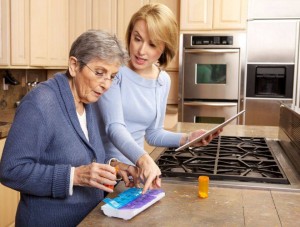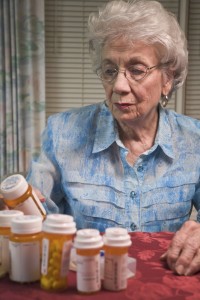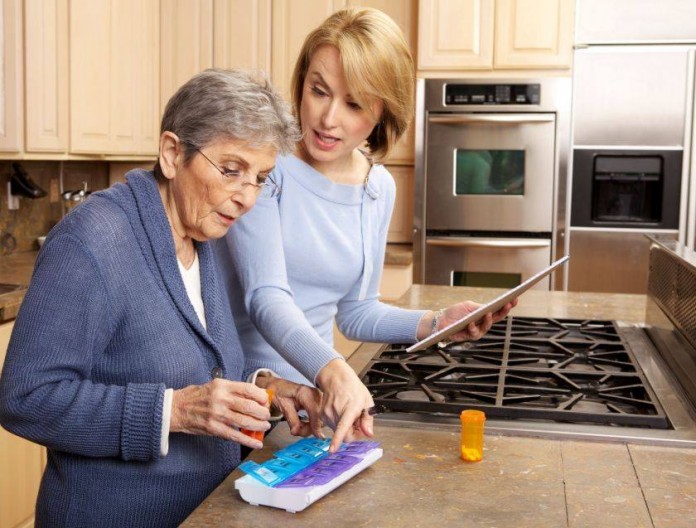Submitted By Sarah Lane for FirstLight HomeCare

For some, the decline is slow in coming. For others, change seems to occur quickly. Either way, nearly every family eventually has to address a complicated and sensitive situation: An aging parent or relative who needs help to safely remain living at home.
So how can you know when an aging family member begins needing assistance with the daily activities of life? Your loved one is not likely to tell you. Older adults will often go to great lengths to maintain the appearance of normalcy and self-sufficiency. And things might even seem normal on the surface.
Do you know how to distinguish the reality from appearance? Focus on these eight clues:
- Cluttered Home. Are there piles of old laundry or dirty dishes? Is the home becoming dusty or overly cluttered? Are floors, toilets, showers and countertops visibly unclean? To ensure the home remains safe, assistance with basic routines like cleaning and laundry might be needed.
- Little or Expired Food. Is there a lack of groceries or fresh, nutritious foods? Is there expired or spoiled food in the refrigerator or cupboards? Help might be needed with grocery shopping, meal menus or food preparation to ensure proper nutrition, especially important for seniors.
- Disorganized Medications. It’s critical that your loved one isn’t mishandling medications, skipping dosages, or taking drugs that are either expired or no longer prescribed. Are some medications past expiration dates or need refills? Reminders might be needed to ensure medications are being taken properly and at the prescribed times.
-

Mishandling medications or skipping doses is one clue that your aging parent may need help at home. Medical Appointments. Is your loved one missing or neglecting medical appointments? Do they seem confused when asked about information or instructions from their doctor? They may need someone to accompany them on visits to the doctor, as well as confirm to other family exactly what the doctor communicated.
- Unopened Mail. Are there stacks of unopened, unsorted mail? Are bills being left unpaid? Is important correspondence being ignored? Assistance with managing mail might be needed to ensure invoices for utilities and other services remain up to date.
- Personal Hygiene. Is your loved one having a difficult time keeping up with personal hygiene? Do you often see them wearing the same clothes? Is there unusual body or breath odor? Matted hair? Unclipped nails? Assistance with bathing, dressing or even using the bathroom might be needed to maintain healthy hygiene habits and personal dignity.
- Cuts and Bruises. Are skin tears and/or bruises becoming more common or noticeable? This could be an indication that your loved one is experiencing trouble with mobility and is at greater risk of falling. They may need some physical assistance navigating their home.
- Isolation. The realization of increased physical limitations can lead to depression and other destructive emotions. Has your loved one changed their social activities and daily routine? Are they isolating themselves from friends and family? Withdrawal into a cocoon of isolation is a key indicator of depression, but can be improved with regular companionship.
In cases where older family members are still fairly independent, but just require assistance in these key areas, home care may be the answer. Trained caregivers from a licensed, professional home care agency like FirstLight HomeCare can help with daily tasks such as bathing, cooking, shopping, house cleaning, changing clothes, transportation or other daily living activities. Caregivers can spend as much, or as little, time as necessary to ensure your loved one is safe in their home.

Home care fills the gap between complete independence and the around-the-clock care (and cost) of living in a facility. It’s a fantastic and affordable solution for those who still want to maintain a degree of freedom and independence by living at home.
“Thriving at Home” is a monthly column by Sarah Lane, a certified Home Care Aide and owner of FirstLight HomeCare — South Sound. To learn more about home care,respite care, dementia care, or any of the non-medical home care services offered by FirstLight HomeCare, give Sarah a call at 360-489-1621 or go to www.southsound.firstlighthomecare.com.

















































